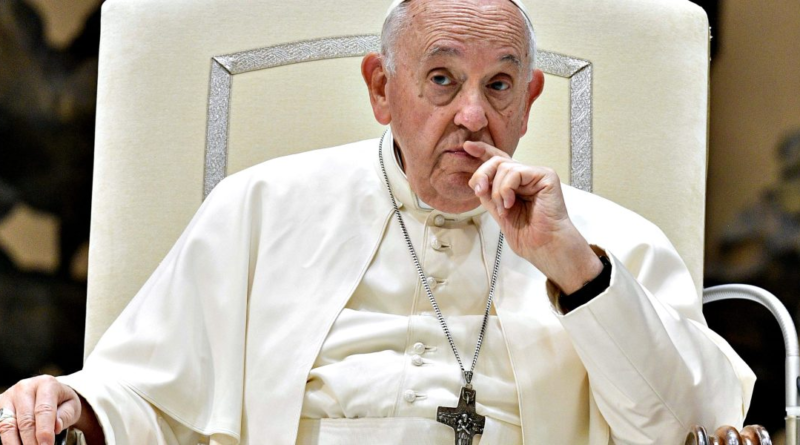Even the Pope is worried humanity needs 'protecting' from A.I.—he was a deepfake target himself
It’s not often a religious leader wades into the world of politics or technology—but artificial intelligence appears to have shaken the Vatican to the point of action.
In an announcement—customarily released well in advance—Pope Francis outlined his theme for World Peace Day in 2024 will focus on ‘Artificial Intelligence and Peace.’
The accompanying statement from the leader of the Roman Catholic Church said “remarkable advances made in the field of artificial intelligence are having a rapidly increasing impact on human activity, personal and social life, politics and the economy.”
The pontifex alluded to an underlying fear the World Health Organization has also flagged: inherent biases built into the technology that may end up informing critical decisions about the future of health, employment, supply chains and more.
Pope Francis wrote society needs to be “vigilant” and “to work so that a logic of violence and discrimination does not take root in the production and use of such devices, at the expense of the most fragile and excluded.” Injustices perceived or real could in term fuel “conflict and antagonism.”
The statement adds that for the technology to be deployed responsibly, ethical use must be reflected in education and law, so that A.I. is used for the “service of humanity and the protection of our common home.”
He finished that protecting the dignity of individuals and a concern for humanity are “indispensable conditions” if the technology is to be used to “[promote] justice and peace in the world.”
His warning joins the clamor of caution from some of the leading figures in the technology industry. Some 33,000 tech professionals, scholars and entrepreneurs have now signed an open letter from the Future of Life Institute calling for a pause in so-called “giant A.I. experiments.”
The furore came after the launch of OpenAI’s ChatGPT, a release which sparked a chain reaction as the likes of Google, Microsoft, Meta and Amazon all scrambled to launch their own A.I. disruptors.
A puffer coat pope proved just how easily A.I. can spread misinformation
Whether or not he knows it, the pope was the subject of an A.I.-created deepfake image earlier this year which went viral.
In the apparent photograph the religious leader, who came from humble origins in his native Argentina, is seen supposedly sporting a white puffer jacket from Spanish designer brand Balenciaga.
Puffer coat pope is fake, but the AI art’s impact is real https://t.co/bgELW6dVc0 pic.twitter.com/FciFp6MjPU
— Polygon (@Polygon) March 27, 2023
The creation rapidly spread across the internet with model and author Chrissy Teigen tweeting: “I thought the pope’s puffer jacket was real and didn’t give it a second thought. No way am I surviving the future of technology.”
I thought the pope’s puffer jacket was real and didnt give it a second thought. no way am I surviving the future of technology
— chrissy teigen (@chrissyteigen) March 26, 2023
In March Pablo Xavier, the man who claims he created the image, told BuzzFeed News he was high on drugs at the time he made the likeness.
The image was not created as a slight on the pontiff, Pablo Xavier said: “I just thought it was funny to see the pope in a funny jacket.”
The viral pope ‘photo’ came on the back of similarly fictional images created of former president Donald Trump apparently getting arrested—which were shared across social media without acknowledgment they were fake.
The pictures were made by Eliot Higgins, founder of open-source investigative outlet Bellingcat, who told the Washington Post: “I was just mucking about. I thought maybe five people would retweet it.”
Official bodies from the FBI to the government of Ukraine have issued warnings about deepfake images. Last month Bill Gates, who is cautiously bullish about large language models and A.I., wrote on his blog that “deepfakes and misinformation generated by A.I. could undermine elections and democracy.”
“Imagine that on the morning of a major election, a video showing one of the candidates robbing a bank goes viral,” the Microsoft co-founder wrote. “It’s fake, but it takes news outlets and the campaign several hours to prove it. How many people will see it and change their votes at the last minute? It could tip the scales, especially in a close election.”


